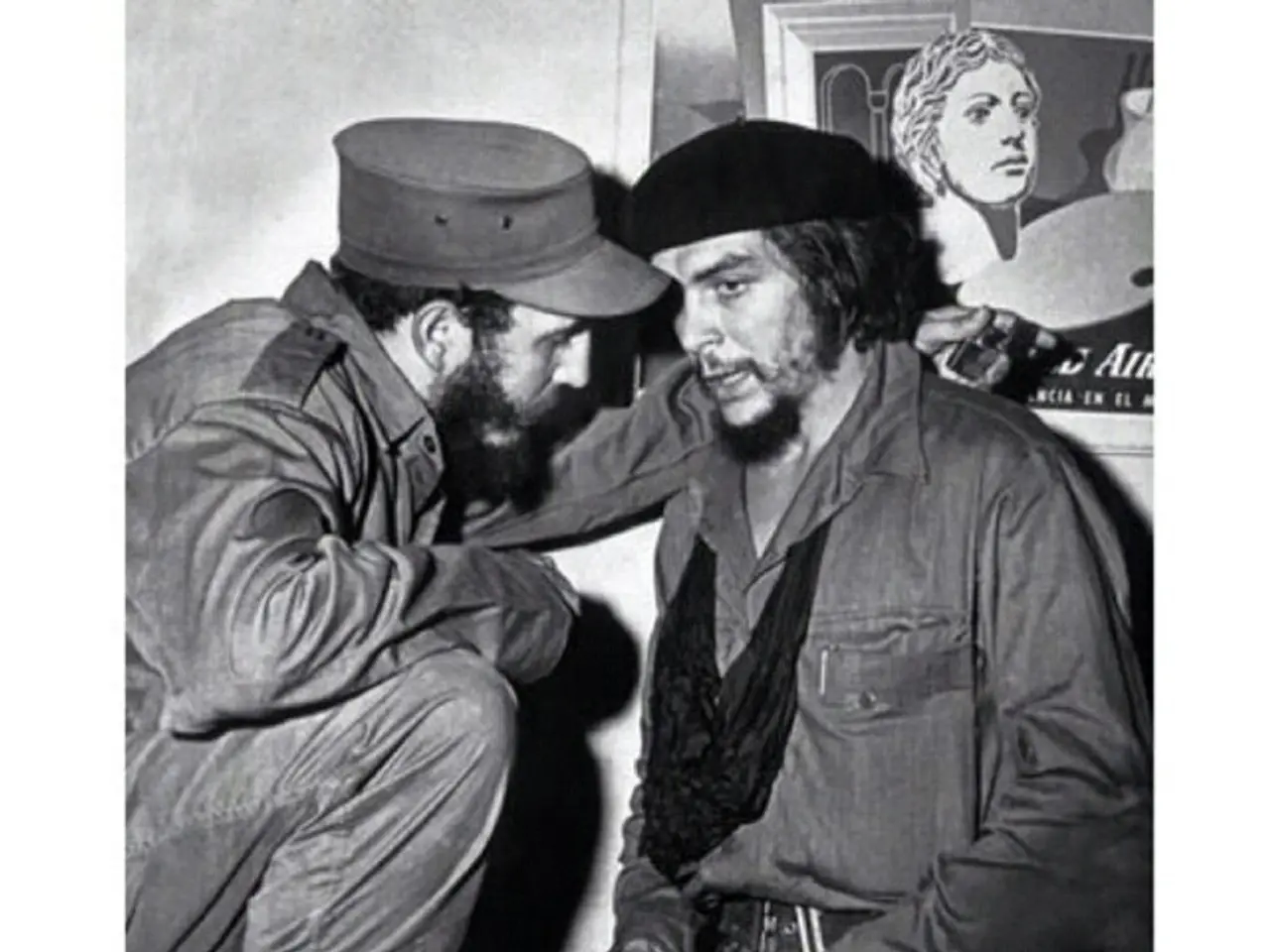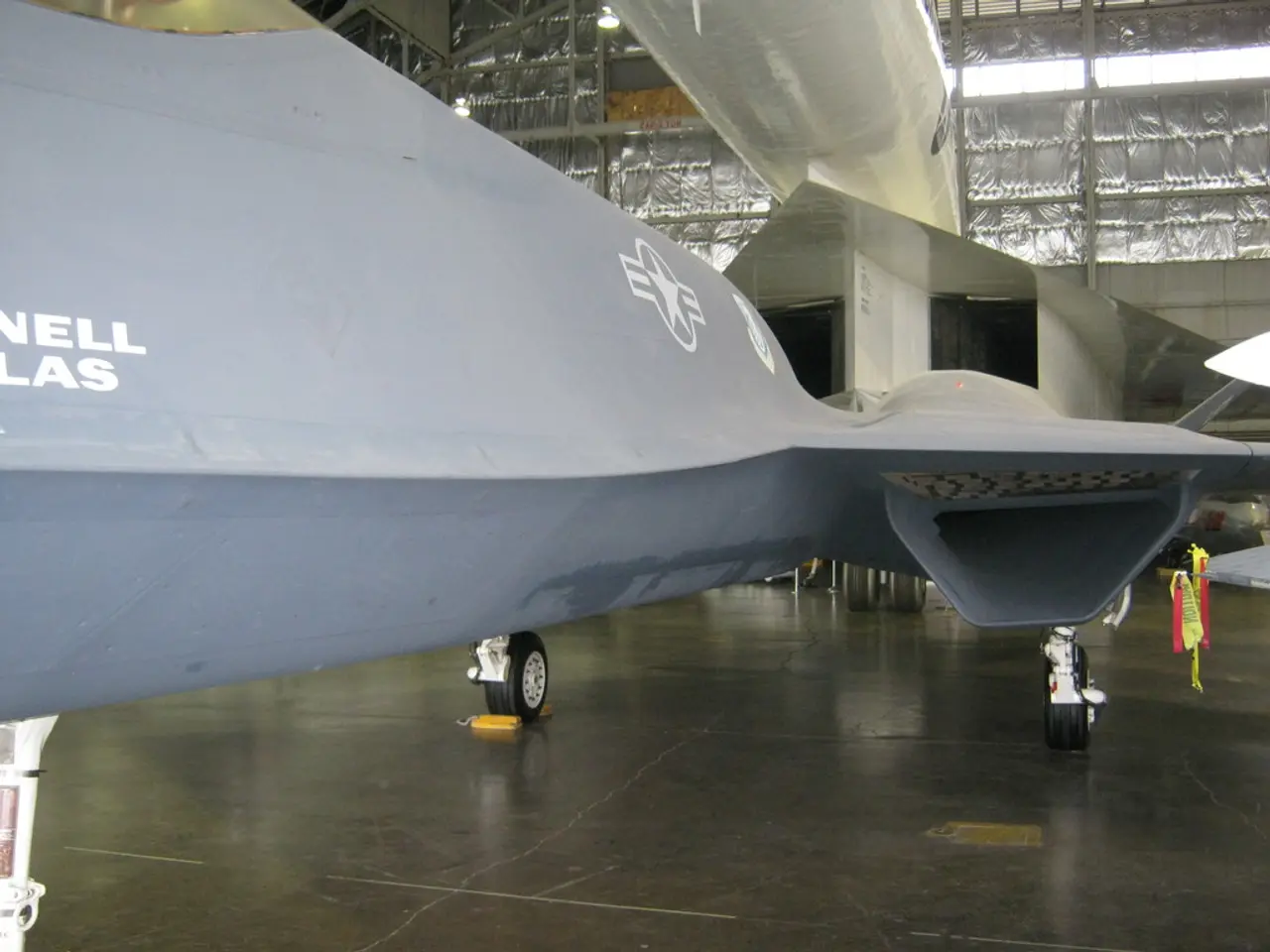Chaotic Clash: Israel vs Iran
Iran's Minister will confer with Wadephul and his team this Friday.
Berlin (dpa) - Foreign Minister Johann Wadephul has rescheduled his planned trips to Lebanon, Syria, and Israel, following the outbreak of Israel's attack on Iran on Friday. Instead, Wadephul is flying to crisis talks in Saudi Arabia, Qatar, and Oman. These discussions are crucial, as the Omani government holds key contacts with Tehran.
The goal is to coordinate action among Germany, France, and the UK - collectively known as the E3 countries - and Iran's neighbors, aiming for a diplomatic solution to the ongoing war.
Previously, the US and Iran had been engaged in negotiations mediated by Oman for almost two months. However, Israel's major attack on Iran on Friday put a halt to these talks. Iran responded with intense rocket fire.
Cancelled Negotiations
A fresh round of negotiations was set to take place in Oman last Sunday. However, talks reached an impasse over the central question of uranium enrichment. Iran had recently enriched nearly weapons-grade material, with Tehran willing to rein in its program as per the 2015 Vienna nuclear deal but refusing to give up its enrichment capability entirely.
US President Donald Trump demanded "unconditional surrender" on Wednesday but didn't entirely rule out further negotiations. He stressed, "It's not too late." Trump had unilaterally withdrawn from the Vienna nuclear deal in 2018, and subsequently, Tehran ceased adhering to the agreement's requirements.
Persistent Conflict
At a meeting with his Jordanian counterpart Aiman al-Safadi in Berlin, Wadephul declared that a negotiating offer had been made to Iranian Foreign Minister Abbas Araghtschi in a telephone call on Monday. The negotiators remain ready to find a solution, but Tehran must take immediate, confidence-building, and verifiable measures, such as demonstrating publicly that it does not seek nuclear weapons. Wadephul added, "It's never too late to come to the negotiating table if you come in good faith."
Meanwhile, the war between Israel and Iran continues unabated. Experts expressed little hope for a diplomatic solution to the nuclear dispute with Iran, with Israel justifying its war due to the "existential threat" posed by Iran's nuclear and rocket program. Recent attacks on populated areas have resulted in injuries and damage to civilian infrastructure.
Insights:
- Israel's air superiority over Iran has allowed it to launch strikes on strategic Iranian targets with limited Iranian counterattack capability.
- Iran's regional proxies, including Hamas and Hezbollah, have been weakened, reducing their ability to respond to Israel's aggression.
- Iran may be reluctant to negotiate due to domestic and international perceptions of weakness.
- The conflict's persistence hinges on these complex dynamics, with neither side showing immediate readiness for de-escalation or comprehensive diplomatic engagement.
Observers anticipate a volatile and unpredictable future, with the conflict's outcome dependent on shifts in military capabilities and political calculations.
Diplomatic efforts to resolve the ongoing war between Israel and Iran have become more pressing, as the disruptions in the negotiations involving the E3 countries and Iran's neighbors necessitate a new approach. Politicians, including Foreign Minister Johann Wadephul, are seeking a diplomatic solution to the persistent conflict, which is rooted in the disagreement over uranium enrichment and Iran's nuclear program. Meanwhile, the war-and-conflicts between Israel and Iran persist, with experts offering little hope for a diplomatic solution to the nuclear dispute, as both sides display resistance to de-escalation or comprehensive talks.







